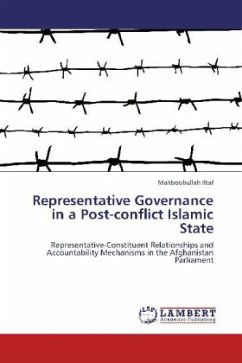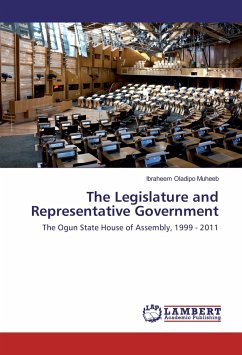Afghanistan governance system re-established after the conflict in 2001 and this book provides you with an insightful argument about representative governance, valued by both Islamic and democratic politics, has, in practice, failed to strengthen the bond between people and government of Afghanistan. Going through this author s work, you will find your answer on How can constituents best hold their representatives accountable in a post-conflict Afghanistan. Representative-constituent relationships (RCRs) lack accountability mechanisms, because they are rooted in weak election processes; high levels of corruption; a lack of public awareness; the weak presence of political parties; and continued insurgencies in the country. These problems impact upon the behaviour and approach of representatives toward their constituents and, therefore, increase levels of mistrust among citizens toward their representatives. After a critical analysis of the literature and field findings, this paperexplores these issues based upon observation of the current practice of the Afghanistan Parliament.
Bitte wählen Sie Ihr Anliegen aus.
Rechnungen
Retourenschein anfordern
Bestellstatus
Storno








